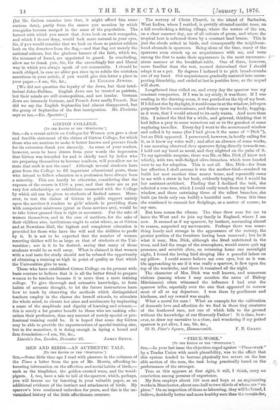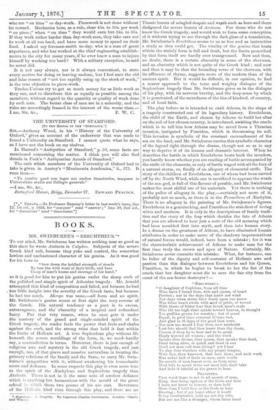" PIECE-WORK."
[To raa EDITOR OF THE "SPECTATOR.") SIR,—In your last issue the objection urged against " Piece-work " by a Trades Union with much plausibility, was to the effect that this system tended to become physically too severe on the less able section of the men, the task being practically based on the performance of the stronger.
True as this appears at first sight, it will, I think, carry no conviction among persons of experience.
My firm employs about 150 men and boys at an engineering works in Manchester, about one-half to two-thirds of whom are "on piece." On an inspection of those so labouring, they will be found, I believe, decidedly better and more healthy men than the remain der,
who are "on time" or day-work. Piecework is not done without its reward. Mechanics here, as a rule, clear 45s. to 50s. per week " on piece ;" when " on time " they would earn but 34s. to 36s. If they work rather harder than day-work men, they take care not to work at all too hard, and have more money to spend on their food. I asked my foreman-smith to-day, who is a man of great txperience, and who has worked at the chief engineering establish- ments in the city for many years, if he ever knew a man to injure himself by working too hard? With a solitary exception, he said he never did.
It is not easy always, nor is it always convenient, to state every motive for doing or leaving undone, but I feel sure the old and false reason of " not too rapidly using up the stock of work," is the true objection to piece-work.
Trades-Unions try to get as much money for as little work as they can, and to distribute this as equally as possible among the members, without regard to the quantity or quality of work done by each man. The better class of men are in a minority, and the -rules are accordingly framed in the interest of the worse class.—











































 Previous page
Previous page